
coClarity
(TIMELINE)
2023-2024
(PROJECT TYPE)
Website
(CONSORTIUM)
LUMC
Cardiff University
Clinic de Barcelona
(BACKGROUND)
coClarity is a shared-decision support tool for people with advanced cancer in the final stages of life, providing information on the risks and benefits of continuing or stopping blood thinners (antithrombotic therapy). It helps patients consider what’s important to them and supports discussions with their healthcare provider. This initiative is funded by the European Union.
(ROLE)
Research
UX strategy
Interface design
Logo
Art directionv
(TEAM)
Today Tomorrow
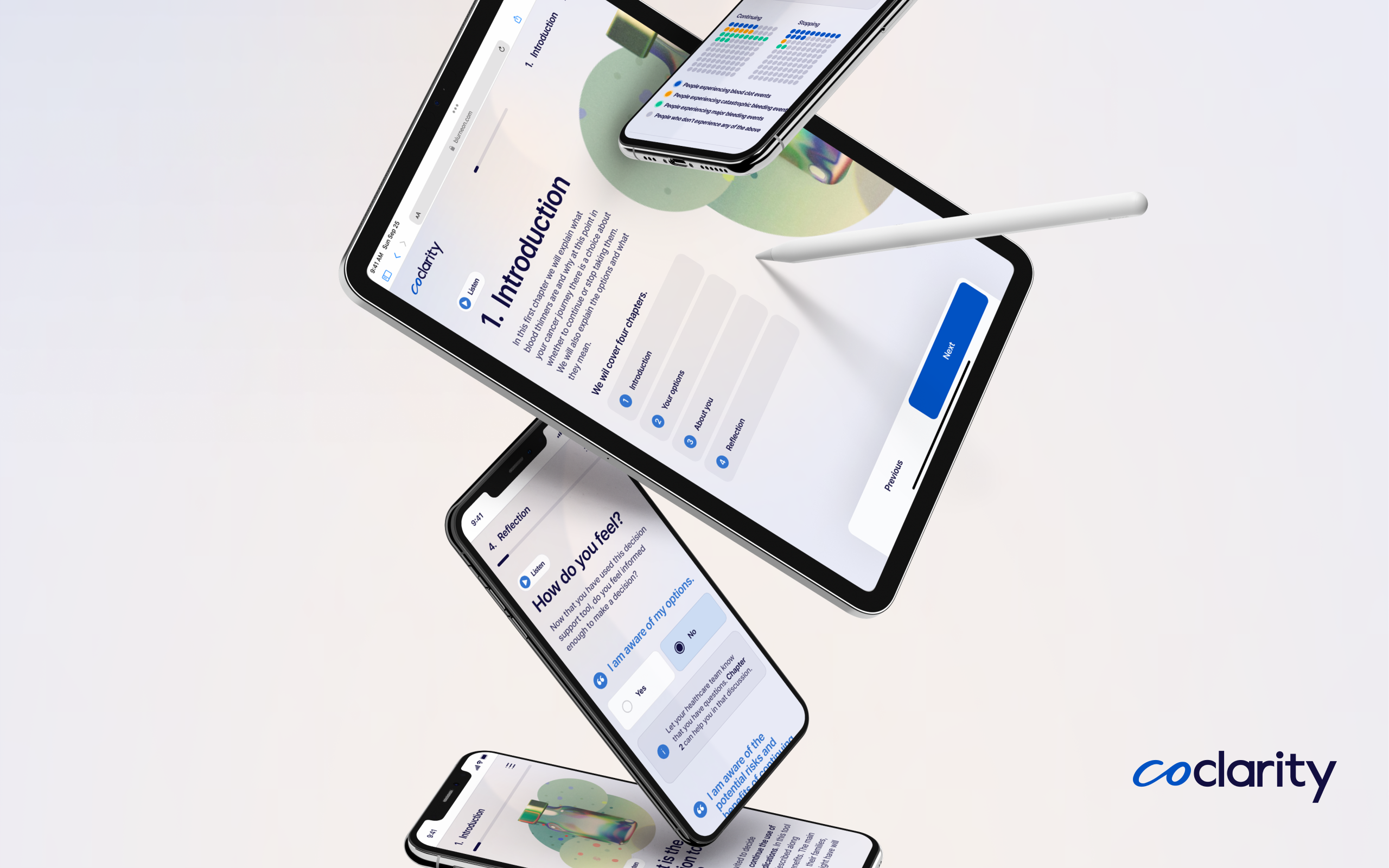
What do we know from our users?
Our target group are patients, their families and general practitioners, nurses, and hospice staff, national and European governments.


(NEEDS 01 )
In 2016, 1.2 million people died from cancer in the EU-27, comprising one quarter of the total number of European deaths.
(NEEDS 02)
Over 50% of cancer patients continued anticoagulants to the moment of death with an associated bleeding incidence of 7-10%. The time until benefit of ATT is often much longer than the remaining lifespan of many cancer patients,


(NEEDS 03)
Both patients and clinicians are often hesitant to discuss stopping medication in palliative care. Beliefs in faith, miracles, religion, the fear of death, and family-centered decision-making are typically the core values that patients and their families consider when deciding whether to discontinue ATT.
The Design Process

(01/ RESEARCH )
- Based on various types of research (cross sectional cohort studies, realist review, large nation-wide epidemiological studies, qualitative studies, and consensus studies

(02/ DELPHI PROCESS )
- Series of rounds to achieve consensus on the optimal interface and content of the SDST

(03/ DEVELOPMENT )
- Developed in close relation with patients and physicians to ensure the utility, usability, and acceptability in everyday practice
- Evaluation will include a non-technical user and field test and an alpha test with a working prototype in NL, UK and IT
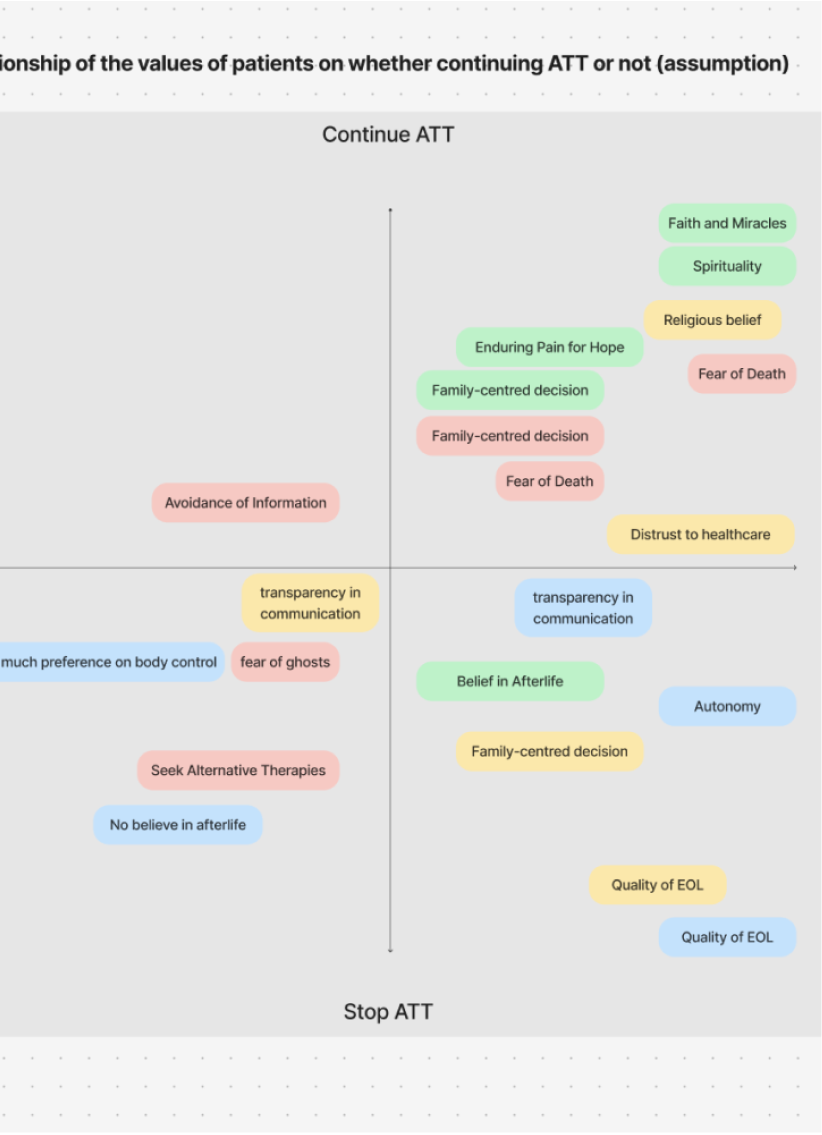
(04/RANDOMIZED CONTROLLED TRIAL)
- Quantifying differences in the number of days patients used ATT, the prevalence of use of ATT 1 month before death, and the complications experienced after counselling.
- Generate sufficient evidence to support guideline recommendations
What do we want to acheive?
User-centred design
Designed to be patient-specific with adaption to gender, cancer-related, cultural, and socioeconomic factors.
Inclusive for everyone
Easily accessible, user-friendly, interactive application that ready for implementation to all EU countries.
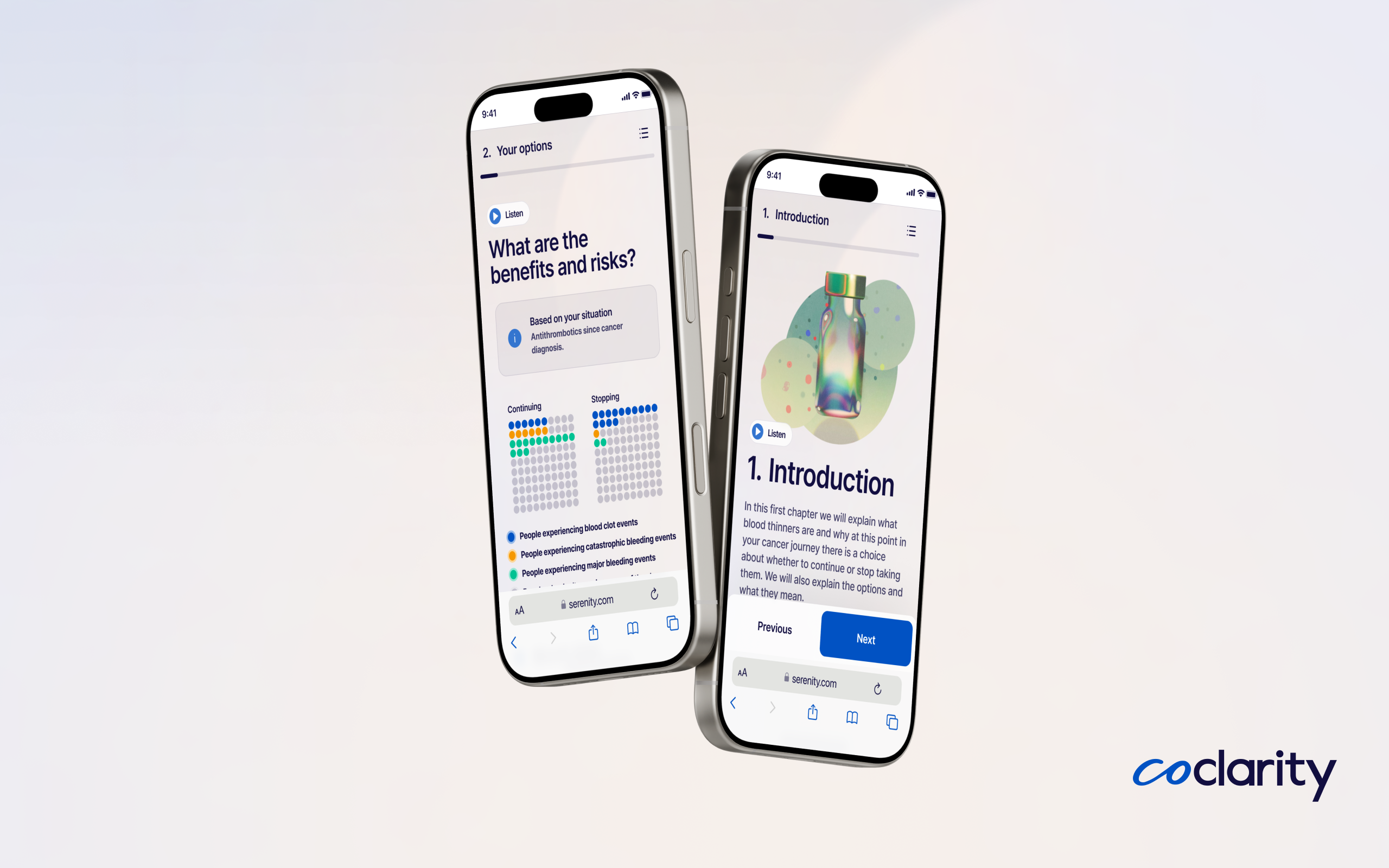
How deos the tool looks like?
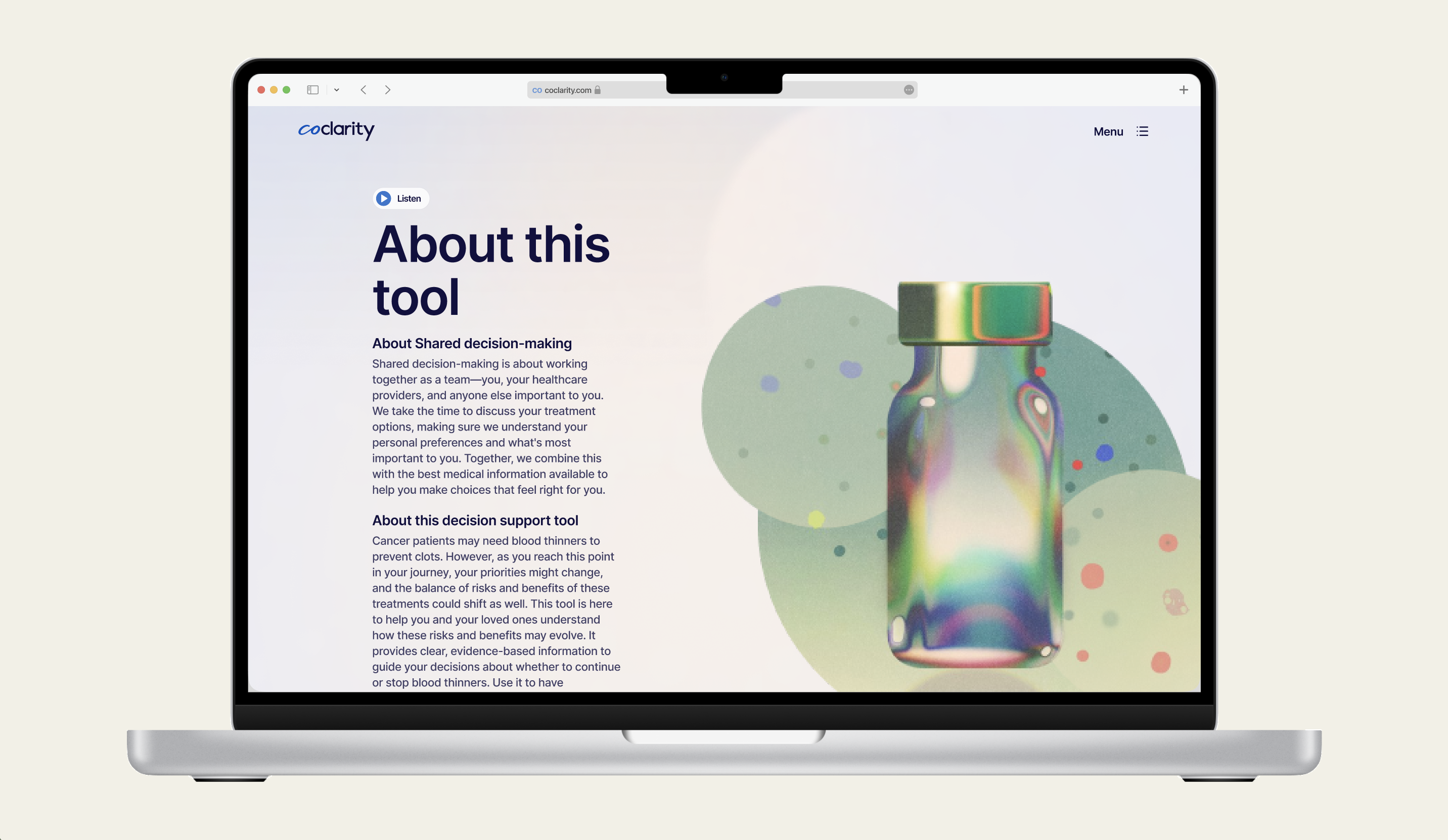
(01)
About the tool
Explain what is shared-decision making.
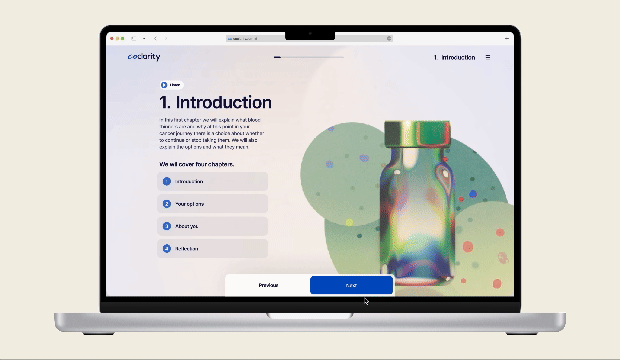
(02)
Introduction of blood thinners
Learn about blood thinners and why, at this stage of your cancer journey, you have a decision to make regarding whether to continue or discontinue them.
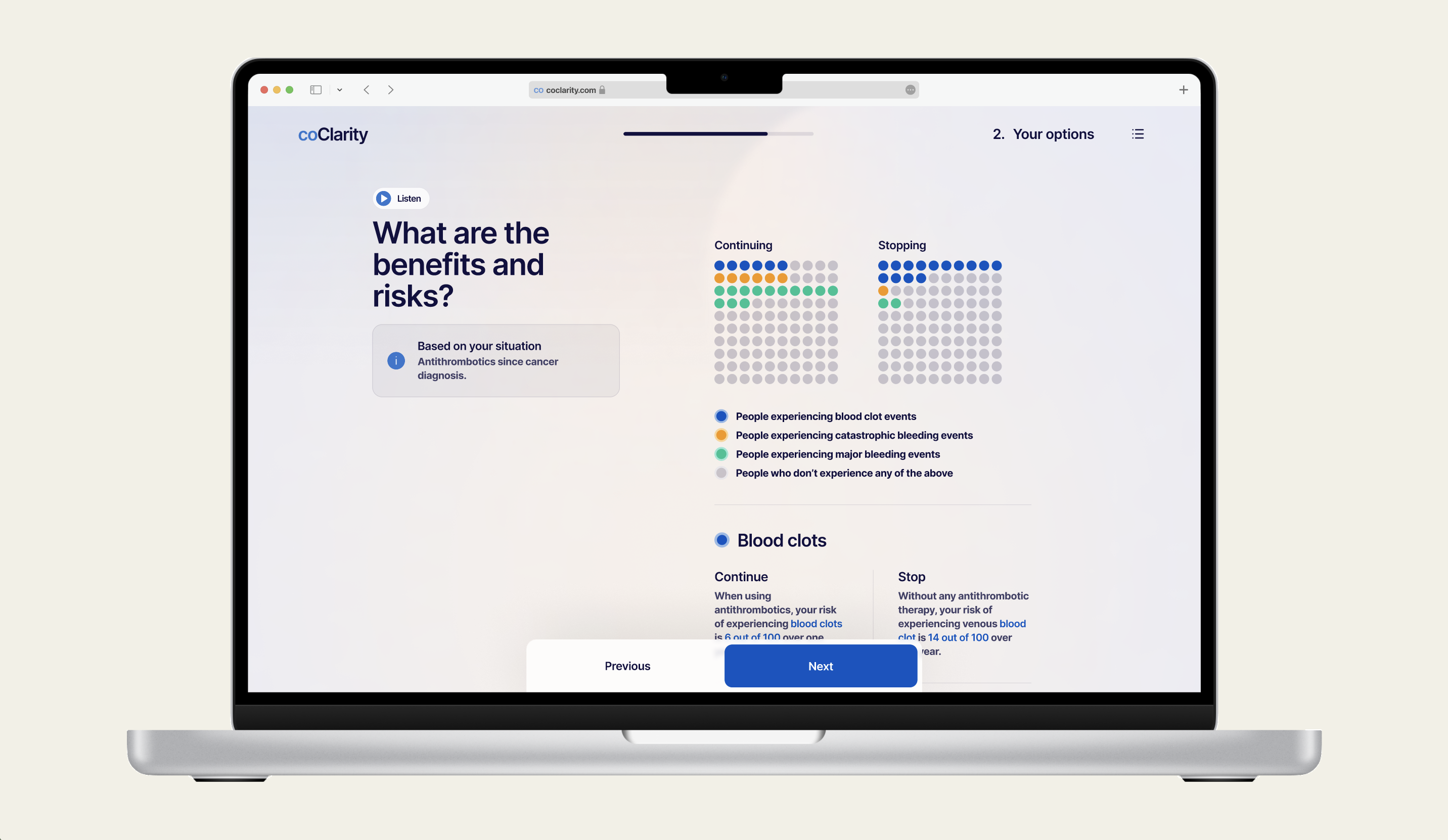
(03)
Your options
Select your reasons for blood thinner use to learn about risks and benefits for continuing or stopping. Review research examples showcasing these aspects.
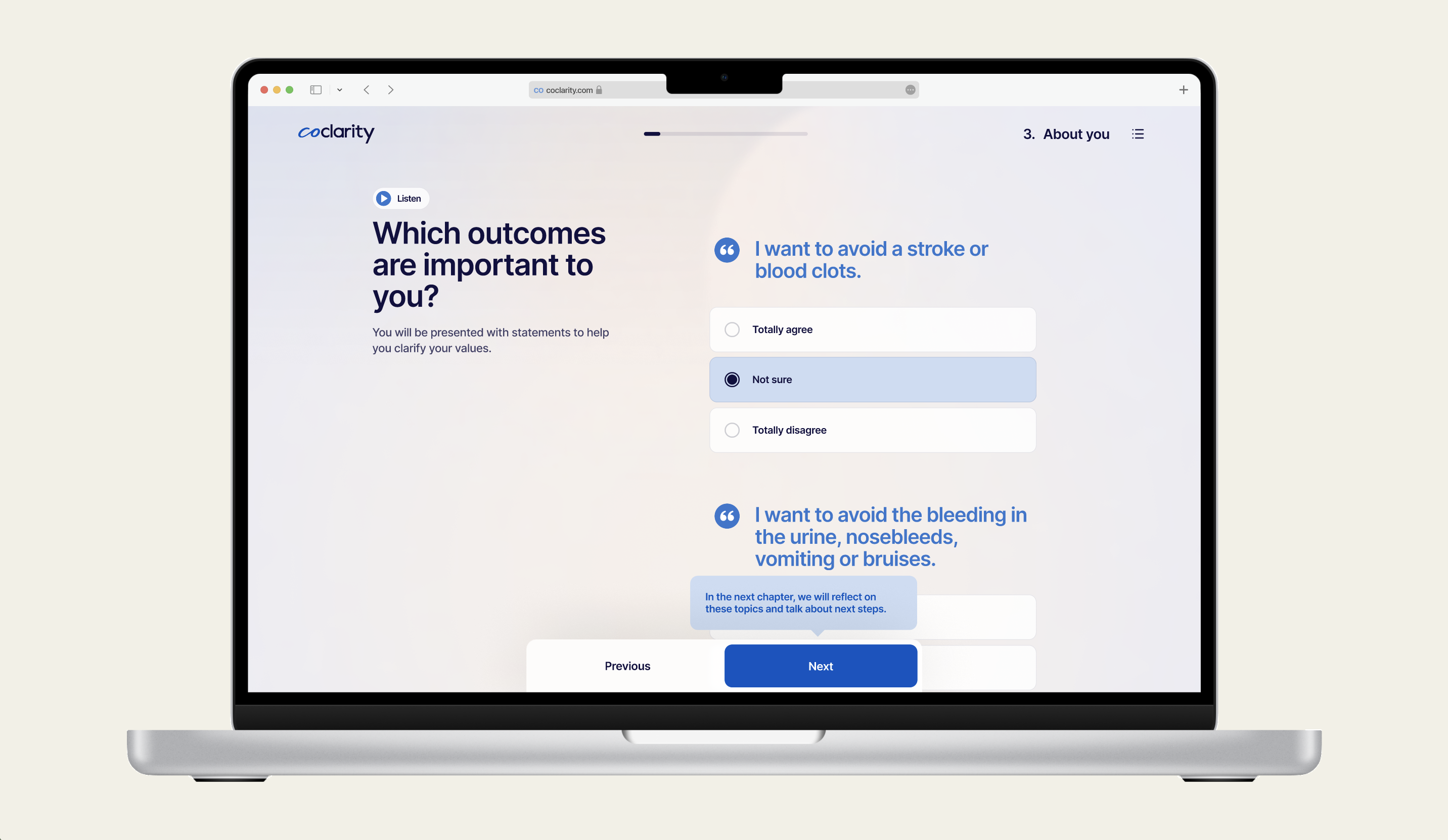
(04)
About you
Consider your situation, the tool's information, and your readiness to decide. We'll guide you on discussing your decision with your doctor.
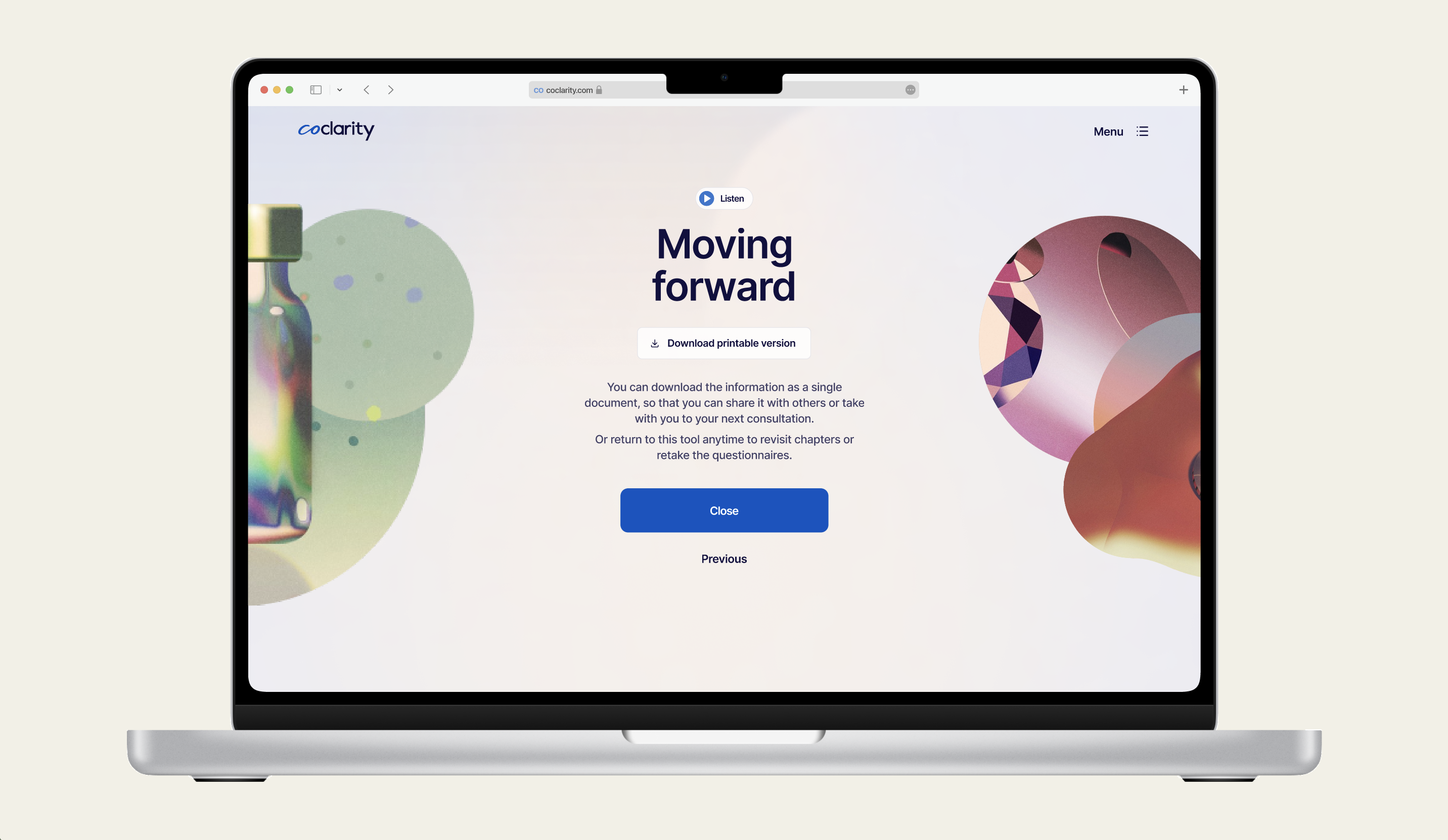
(05)
Download the result
Share it with others or take with you to your next consultation.
Project insights
(INSIGHT 01)
The intervention will ultimately lead to appropriate use of ATT, prevention of bleeding complications, and considerable cost savings in addition to improved quality of life and treatment satisfaction of patients, their carers, and involved healthcare professionals.
(INSIGHT 02)
Available in all 23 official languages of the EU as well as Turkish, classic Arabic and Chinese (Mandarin), designed for those who may have low literacy or health literacy, or dyslexia, and considering applicability to the complex human, social, cultural, and ethical aspects of the decision-making process
(INSIGHT 03)
Contributing to reduced health-related suffering and improved well-being and QoL for cancer patients in need of palliative care
